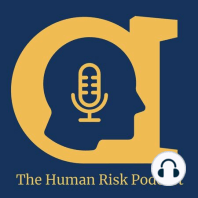37 min listen
Tom & Christian's 2nd Human Risk Talk
ratings:
Length:
37 minutes
Released:
Nov 28, 2019
Format:
Podcast episode
Description
In this episode, I'm joined again by co-host Tom Hardin. Together we explore Human Risk related stories we've come across that we think are worth diving into in more detail.You can hear Tom's story in Episode 2.In this episode, we look at three stories, conveniently featuring an A, a B and a C!A is for AirBnB: we look at the room-leasing platform in the light of recent incidents. We also explore what it and other platform-based businesses need to think about in terms of Human Risk Management.B is for Boeing: we look at the latest developments involving the Seattle-based aeroplane manufacturer and consider what went so wrong.Finally, C is for Cheating. In the last Human Risk Talk, we explored Marathon Cheating. This time its exam cheating which appears to be gaining greater prevalence. We explore why and look at ways that we can disincentivise people from engaging in it.We close out the episode with two recommendations. Tom talks about Chernobyl, the HBO TV series and I share my views on a book called The Bank That Lived A Little which tells the story of Barclays Bank.
Released:
Nov 28, 2019
Format:
Podcast episode
Titles in the series (100)
Tom & Christian's 2nd Human Risk Talk: In this episode, I'm joined again by co-host Tom Hardin. Together we explore Human Risk related stories we've come across that we think are worth diving into in more detail. You can hear Tom's story in Episode 2. In this episode, we look at three... by The Human Risk Podcast
